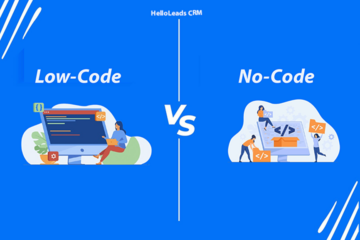
In our professional life, we get involved in conversations with people who deal with various topics. During these conversations, we use many words in different contexts. But, are we using the right word in the right context while talking about issues relating to our work? Sometimes, we say we are not sure. The random usage of words in conversations is trivial in normal chats. But in professional conversations, it is important to use the right word in the right context. For this, you need to know the meaning of the word and then use it aptly in your conversation. When you are handling sales and marketing, you need to understand the meaning of words while using them. In sales & marketing, there are a few words that are often misinterpreted. Especially, the words “Sales Lead” and “Prospect” are interchanged in certain contexts. So, let us quickly see what a sales lead and a prospect mean.
Sales Lead:
Lead generation plays an important role in the sales process and also forms the first step in the process. Your subsequent steps in the sales process depend on how well you generate your leads. So, who is the lead? A lead is a person who enquires about your product/service. But we do not get many details about those people who enquire. Usually, in the case of leads, we will have only their name, company name, and contact number.
You can get a lead in the following ways:

- Persons whom you meet on tradeshows, conferences, online sessions like webinars, etc.
- The new persons on your email list
- New connections you have contacted through LinkedIn
- People who provide comments on your blogs, videos, FB page, etc.
- People who liked or shared your social media post
Prospect:
A prospect is an individual who is interested in buying your products/services. There are also possibilities for the prospect to transform into a potential customer thereby turning your marketing efforts successful.
You can identify a prospect in the following ways:
- A person who engages with you in a call / responds to your email
- A person who has visited your website through any links / from social media
- A person who has shown interest in a demo of your product
The difference in marketing approach:
Once you understand the difference between a sales lead and a prospect, you can form a unique marketing strategy for sales leads and for prospects. However, you should keep one thing in mind: not everyone you meet will become a prospect/customer.
1. How to approach leads:
Before bringing a person under the category of sales lead ensure their interest in your products/service. Then, update your database. This allows your CRM to segment your audience and identify the leads that require more research. In this case, your objective will be to transform your sales lead into a sales prospect. Whenever you communicate with a lead, make sure that it is all about creating interest/awareness about your product/service. With this thought in mind, you can approach a sales lead in the following ways and transform them into a prospect:
- Get into a call with the lead and know their details through questions like who are they, what is their domain, how many years have they been active in business, what are their needs, and how did they know about your products/services
- If the call is successful, you can send a one pager / any brochure providing a crisp overview of your products/services
- This is subsequently followed by follow-ups which can transform the lead into a sales prospect
2. How to approach prospects:

If you have transformed your sales leads into prospects, the next objective is to transform the prospects into potential customers. So, your strategy should be focused on ascertaining the stage of the buying process of the prospect. Also, before engaging with a prospect make sure to analyze and get answers to the questions listed below:
- How well do you know about their business and specific challenges?
- How frequently do they visit your website?
- In what way your product/service can help them in overcoming challenges?
- What is their budget and will they appreciate a proposal?
A clear understanding of the above questions will help you to determine the number of follow-ups. From this, you can conclude that approaching a prospect is all about turning an interest into a relationship.
Though there are various sales and marketing approaches followed for sales lead and prospect, we have provided the difference between the two terms and then proceeded with the marketing methods accordingly.
Share this blog :












